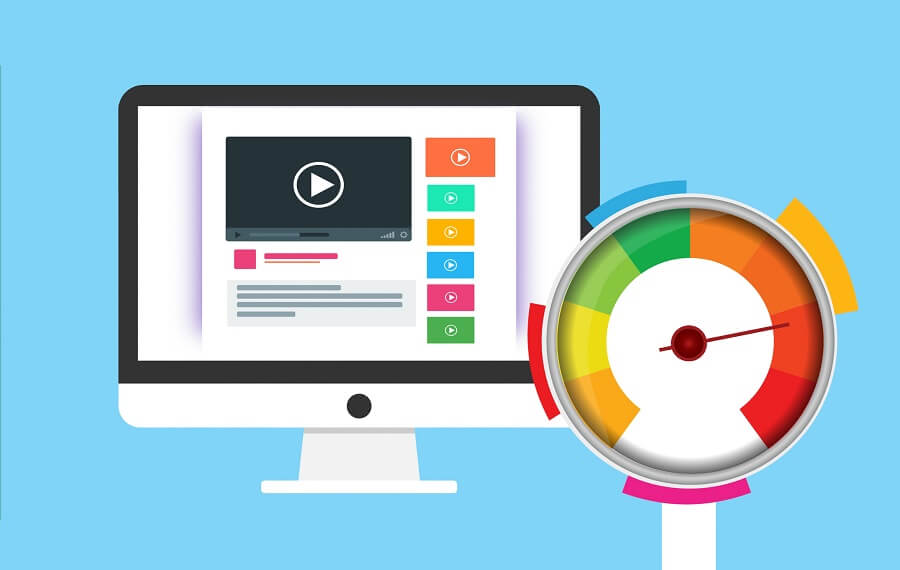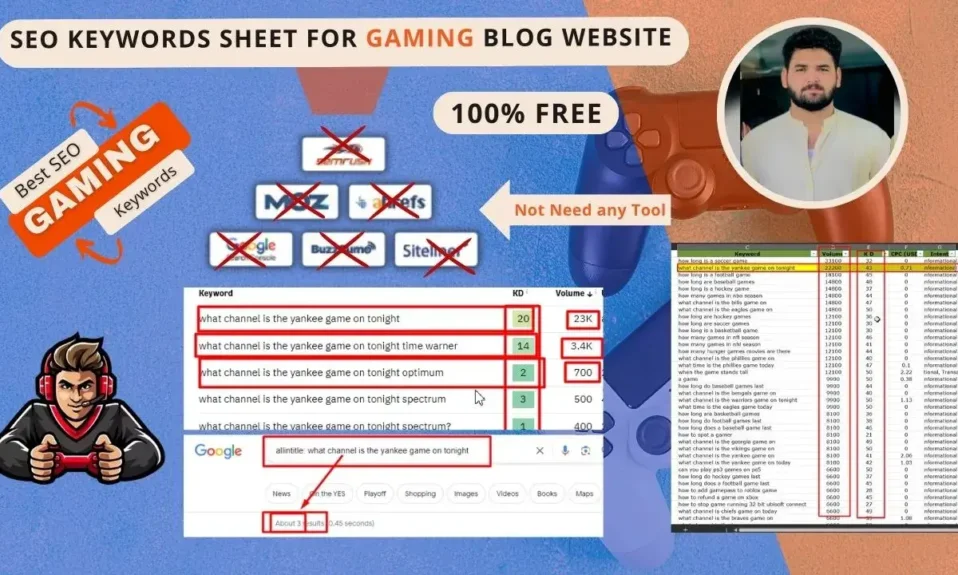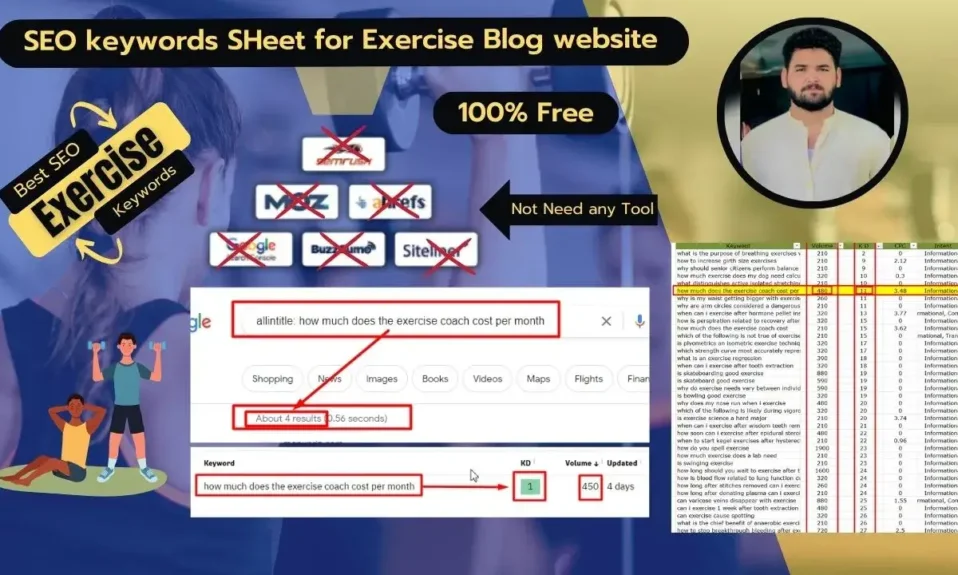
Many people use WordPress, a fast and simple content management system, to create websites. It is also open-source software that can run on a server or a web browser. People use WordPress who want to create blogs, and users of the social media platform Twitter use WordPress to create their accounts. As a web developer, you can use WordPress for your sites without creating any user issues. Many websites are based on this content management system. But, not all are optimized or fast enough to load.
WordPress is a fast and simple content management system many people use to create websites. The software runs on servers and uses HTML as its coding language; this makes it suitable for creating websites using a text editor such as Notepad. It’s also compatible with most web browsers. It’s free to use and doesn’t require monthly subscriptions like other hosting services. Many people use WordPress when creating websites due to its low learning curve and wide range of plugins that extend its functionality further.
I. Why Speed of Website Is Important
In today’s fast-paced digital world, the speed at which your website loads plays a crucial role in determining its success. Users have become increasingly impatient, and studies have shown that even a mere second delay in page load time can lead to higher bounce rates and lower conversion rates. A slow website not only frustrates your visitors but also negatively impacts your search engine rankings. Therefore, it’s imperative to understand the importance of optimizing your website for speed.
II. How to Check the Speed of Your Website
Before diving into the process of optimizing your website for speed, it’s essential to assess its current performance. Thankfully, there are several tools available that can help you measure your website’s speed and identify areas that need improvement. One of the most popular tools is Google PageSpeed Insights. By simply entering your website’s URL, this tool provides you with valuable insights and actionable suggestions to enhance your site’s speed. Other tools like GTmetrix and Pingdom also offer comprehensive speed analysis and performance reports.
III. What Slows Down Your WordPress Website?
Numerous factors can contribute to a slow WordPress website. Understanding these factors is crucial for implementing effective speed optimization strategies. Some common culprits include:
- Bloated Themes: Using heavy and feature-rich WordPress themes can significantly slow down your website. Themes that come bundled with excessive plugins, complex design elements, or unnecessary code can add unnecessary weight to your site.
- Unoptimized Images: Large, high-resolution images that are not properly optimized can dramatically impact your website’s speed. It’s essential to compress images without compromising their quality to reduce their file size and improve loading times.
- Excessive Plugins: While plugins can enhance the functionality of your WordPress site, too many plugins or poorly coded ones can slow it down. Each plugin you install adds additional code and can potentially conflict with others, resulting in a sluggish website.
- Unoptimized CSS and JavaScript Files: If your website’s CSS and JavaScript files are not minified and combined, they can increase the number of HTTP requests, leading to slower load times. Additionally, poorly written code and unnecessary comments can hinder performance.
- Bloated Database: Over time, your WordPress database can accumulate unnecessary data, such as post revisions, spam comments, and trashed items. This bloating can affect your site’s speed and overall performance.
IV. How to Optimize Your WordPress Website to Load Fast
To ensure your WordPress website loads quickly and provides a seamless user experience, it’s crucial to implement effective optimization techniques. Here are some key strategies:
- Choose a Better Web Hosting Provider: Opt for a reliable web hosting provider that offers fast servers, solid uptime, and scalable resources. A quality hosting provider can significantly improve your website’s speed and overall performance.
- Use a Lightweight WordPress Theme: Selecting a lightweight theme that prioritizes speed and performance can have a substantial impact on your website. Look for themes that are optimized for speed, have clean code, and offer essential features without excessive bloat.
- Reduce Image Sizes: Optimize your images by compressing them without sacrificing quality. Utilize image optimization plugins or online tools to reduce file sizes. Additionally, consider using lazy loading techniques to only load images when they become visible to the user.
- Minify JS and CSS Files: Minification involves removing unnecessary characters from JavaScript and CSS files, such as white spaces, comments, and line breaks. Minifying these files reduces their size, leading to faster loading times.
- Cleanup WordPress Database: Regularly clean up your WordPress database by removing spam comments, post revisions, and other unnecessary data. Plugins such as WP-Optimize can automate this process and help improve database performance.
V. Step-by-Step Guide to Speed Up a WordPress Website
1. Choose a Better Web Hosting Provider
When selecting a web hosting provider, prioritize speed and reliability. Look for providers that offer SSD storage, server caching, content delivery networks (CDNs), and scalable resources.
2. Use a Lightweight WordPress Theme
Opt for a lightweight theme that emphasizes speed and performance. Themes built on frameworks like Underscores or optimized themes from reputable developers can offer excellent speed without compromising functionality.
3. Reduce Image Sizes
Before uploading images to your website, optimize them by resizing and compressing them. Use image optimization plugins or online services to reduce file sizes without affecting visual quality.
4. Minify JS and CSS Files
Utilize minification plugins or online tools to remove unnecessary characters from your JavaScript and CSS files. This process reduces file sizes and improves loading times.
5. Cleanup WordPress Database
Regularly clean up your WordPress database by removing spam comments, post revisions, and unused plugins or themes. Use database optimization plugins to automate this process and enhance overall performance.
Regular Update:
WordPress websites need regular updates to work well old. Plugins can cause issues ranging from slow website loading to page creation time crashes. So, keeping your website up-to-date is essential. So you don’t lose traffic due to slow loading times or bugs in your plugins. You can install an automatic update service such as WordPress or update your website. Dashboard > Updates menu option. Or, you could try using several plugins for an optimized website experience or try out one of the caching plugins mentioned in this article.
Top Useful Plugins for WordPress:
The most effective way to optimize your website for speed is to use a caching plugin like W3 Total Cache or WP Fastest Cache. These plugins store all your content on a user’s computer instead of uploading everything onto your server’s web browser every time a page loads. Reduces load times and saves users from waiting for pages to load. Particularly those accessing your website via slow internet connections at school or work. Furthermore, suppose users have large files stored on their computers when visiting your site. In that case, you can tell them via email about downloading the entire contents of each page before they view it so that their computer doesn’t pause while processing large files instead.
Despite being slower than newer platforms such as Twitter’s Bootstrap, WordPress is still suitable for many websites since it’s easy to use and doesn’t need monthly subscriptions like other hosting services. Yet, users will enjoy optimizing their websites to load since slow loading times can make browsing unpleasant. Or even unusable without constant interruptions from their internet browser’s cache.
Install the right plugins
Plugins are extensions that add extra functionality to your website. Plugins can help you manage your site more, protect your site from malware attacks, speed up your site’s loading time, and much more. Yet, not all plugins create equal. You need to make sure you install the right plugin before installing them.
Optimize your theme
A good theme will have built-in features that improve your site’s performance. These features include caching, minification, compression, and gzip. If you don’t use these features, you’ll waste bandwidth and slow down your site’s loading time.
Use cache
Caching stores content on your server rather than sending requests to the web server for each request. Caching helps reduce load times and speeds up page loads.
Minify CSS and JavaScript
Minifying CSS and JS (JavaScript) files reduce file size and make pages load faster. Minified files are smaller and easier to handle than their original versions.
Remove unused code
Unused code takes up valuable space on your server and slows down your site. You should remove unnecessary scripts, stylesheets, and images from your files.
Use CDN
Content Delivery Network, or CDN, is a service where you can host static assets like images and videos from different locations. A CDN increases the chances that visitors won’t experience slow loading times.
Reduce HTTP requests
HTTP Requests (or called requests) refer to how often you send data over the internet. Each time you send data, it requires a separate HTTP request. Make sure you only send what’s necessary to display the page. Reducing the number of HTTP requests will increase the speed at which your site loads.









21 Comments